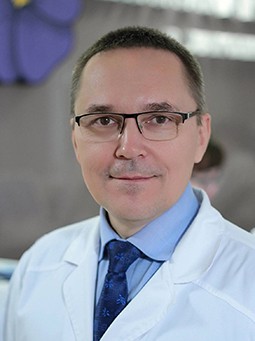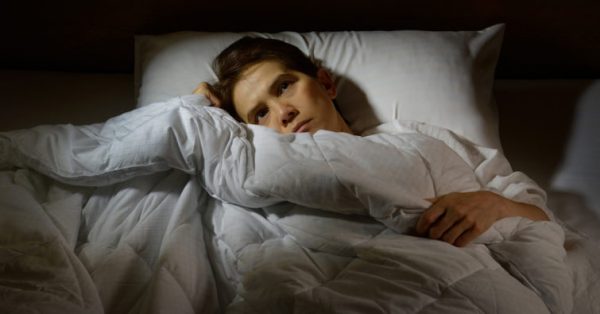 In Russia, about 42 million people suffer from insomnia, most of them live in megapolises, according to the Center for Sleep and Wake Neurotechnology. Lack of regular, normal sleep can make life a nightmare, and it takes years to restore it. Pravmir spoke with people, who have been living with chronic insomnia for many years, and with Roman Buzunov, a somnologist, about finding a cure, acceptance, and dreams of a good night’s sleep.
In Russia, about 42 million people suffer from insomnia, most of them live in megapolises, according to the Center for Sleep and Wake Neurotechnology. Lack of regular, normal sleep can make life a nightmare, and it takes years to restore it. Pravmir spoke with people, who have been living with chronic insomnia for many years, and with Roman Buzunov, a somnologist, about finding a cure, acceptance, and dreams of a good night’s sleep.
Polina Arkhipova is 21 years old, studying to be a biologist. It is harder for her than for other students. Polina has had insomnia for three years. It all started when she was finishing school and taking exams. She had to enter a university and move to another city. At the same time, Polina’s father died.
Due to severe stress, the girl stopped sleeping normally and she still cannot.
“I sleep two hours a day to survive”
— I go to bed in the evening: it does not matter if I do it earlier or later. No matter what time I go to bed, I wake up around 1 am or, at most, 2 am, and I cannot sleep until morning, – explains Polina. – I go about my business, watch something, listen to something, and most often draw. I do not want to sleep at all. Only around morning, I start to get sleepy, and then I fall asleep for a couple of hours.
When her loved ones once again say, “Try to fix your regime”, Polina tries to force herself to sleep. She wakes up and does not get up, continues to lie with her eyes closed, and listens to soothing music. This goes on for an hour or longer.
And no, it does not help.
— If I do not get up, I will not do anything until at least 6 am, I would not be able to fall asleep then at all, – Polina admits. – No matter how hard I try, no matter what medications I take, no matter what I do: I increased the amount of my physical exercises, went to bed at different times, or did not sleep for a couple of days and then tried to sleep all night – nothing helps. The body actually passes out, but it is only for one night maximum, then it all happens again.
At night, she sleeps for two hours. Three hours, at most. This has already affected her health.
— I have constant dizziness, shaking hands, fuzzy consciousness, – says the girl. – I see that I do much worse at university tasks than my groupmates. For example, they spend literally half an hour in the evening to read an article, while I can spend a couple of hours on the same information and still do worse. In class, even if I am very interested in a topic, I cannot help myself but fall asleep.
No matter what I have done in these three years, I always fall asleep: in the master’s chair, when I am in a beauty salon; in class, even if I sit right in front of the professor; before exams, – she continues. – The more stressed I am, the stronger my insomnia is: I get very nervous before exams, so I do not sleep at all at night, and because of this I have fallen asleep right before leaving my house a couple of times.
Polina says that she often falls asleep in public transport. To the assurances that this happens with everyone, she answers that this happens to her too often.
— I go to visit my family in another city and wake up realizing that I am sleeping on a stranger. Then, of course, I apologize, but it happens at so wrong times. By the way, I fell asleep while standing as well.
When I was preparing for exams, I understood that there was huge volume of the material, I was nervous, and sometimes I would go somewhere and wake up from simply leaning against a wall, – she admits.
Polina Arkhipova is under medical supervision. She is prescribed sleeping pills: both strong and weak, as well as sedative pills.
— All this either helps for a couple of nights or it does not help at all, – she says. – In general, I have no problems falling asleep, I can lie down and fall fast asleep at any moment. However, I cannot stop waking up, even when I take pills. My grandmother and mother believe in traditional medicine: they insisted that I brew herbs such as motherwort and lemon balm that are supposed to calm you down and have a hypnotic effect. Yet, the herbs are not effective for me at all.
Polina’s family lives in another city. The first question that they ask when calling is how their daughter and granddaughter slept at night. Her loved ones never stop worrying about it, her mother continues to give advice, but in general, everyone has come to terms with it.
— Many people think that I am deliberately not sleeping. Especially those I have met recently, – says Polina. – They think that I like to think of the things to do in the middle of the night instead of sleeping. There are problems that people underestimate. Since I am an introvert by nature, I do not share much about my sleep habits. I basically do not have any friends, my loved ones already know about it, but some people still believe that this problem is far-fetched.
The young woman was repeatedly sent to the hospital so that doctors would work on several problems with her, including problems connected with her father’s death. However, she does not have time yet. “I set myself a goal to finish university, no matter how hard it would be”, – stresses Polina. After graduation, she plans to undergo treatment in a clinic.
— When I meet new people, I first ask them about what dreams they have, – Polina admits. – I am very interested in hearing about it. I even have friendly envy for those who dream of something bright and colorful.
I have not had a dream since my insomnia started, – she continues. – I just fall asleep and grab this opportunity like a lifeline. I mean, I never get enough sleep, and I need those two hours to live.
There is an epidemic of insomnia in Russia

Roman Buzunov
Roman Buzunov, president of the Russian somnologist society, a professor, and Doctor of Science, believes that 99% of adults in our country have experienced insomnia at least once in their lives, 50% experience it intermittently, and 15% suffer from chronic insomnia.
— Acute insomnia means difficulties with falling asleep, waking up in the middle of the night, or waking up early, – he explains. – In all cases, the criterion is 30 minutes. That is, it takes more than half an hour to fall asleep. Or a person is awake in the middle of the night for a total of more than 30 minutes. And also if a person wakes up 30 minutes earlier than they would like. For example, they set an alarm for 7:00, but wake up at 6:30 or earlier and can no longer sleep.
Sleep disorders are accompanied by daytime symptoms that worsen the quality of life. Those are fatigue, tiredness, drowsiness, and so on.
— Acute insomnia lasts up to 3 months, but it varies for different people. Everything can be subjective: someone feels bad only after one such night, others cannot sleep for three nights and they feel okay afterwards, – the doctor continues.
Roman Buzunov says that acute insomnia most often goes away on its own, when the source of stress disappears: it may be flights, illness, and so on.
— Three or more bad nights a week for more than three months in total: that is a chronic insomnia, and it usually requires treatment. This condition can really be called a disease, – the somnologist notes.
In addition, insomnia can be a symptom of some pain, stress, or hypothyroidism, increased thyroid gland function. Or it could be a restless leg syndrome: when a patient has extremely unpleasant sensations that are difficult to describe in their legs, which forces a patient to move them around. Yet, insomnia can also be an independent disease.
— If something disturbs the sleep, for example, a stressful situation, and a person tries to fall asleep 20-30 times and they fail, then they develop a persistent conditional reflex of fear of not falling asleep, – Roman Buzunov says. – The person is frustratingly sleepy, but when they lie down, they do not want to sleep anymore. Or they wake up in the middle of the night and cannot go back to sleep. They start spending more time in bed, try to sleep, and limit themselves in social life: they have a so-called maladaptive behavior. This is a conditioned reflex insomnia.
“No one believed that I did not sleep at all”
Darya Mishchanchuk is 34 years old. She works as an accountant, works part-time as a fitness trainer, has completed IT courses, but she has not yet found a job in this field. Her life seems quite prosperous. However, for five years, Darya has been struggling with insomnia.
The problems started in 2015. Darya says that a series of misfortunes caused sleep problems.
— First, I lost my father: he died in 2012, but I had a hidden depression for three years: I was torn inside, but on the outside, I seemed calm. The grief subsided over time, and things started to get better. In 2015, I was fired due to the downsizing of the company I devoted eight years to. The decisive factor was that I foolishly smoked an unknown substance once, – says Darya.
After that incident, she was troubled with fears and worries about her health. She got a tachycardia. Darya tried to live a normal life, engaged in professional sport: in CrossFit, in particular.
— However, at the competition, I suddenly was overcome with fear. I thought I was dying, although there were no symptoms. I simply ran out of the gym, – she recalls.
From that day on, bouts of panic and fear happened to her constantly. Then Darya did not yet know that these were called panic attacks, and she did not understand what was happening to her at all. For a year and a half, her body temperature was 37,1-37,4, she also experienced fatigue. “I felt as if I was about to come down with the flu”, – the young woman explains. She started going to doctors to get diagnosed for different diseases. She started having hypochondria, then neurosis, and sleep problems along with it.
— At first, I slept normally. Sometimes at night, I would suddenly jump up from the lack of air or a pounding heart, but all this would pass, and then I went back to sleep. Then one night, it was in June 2015, I tossed and turned until morning. After a while, it happened again, then I could not sleep for two days in a row and started worrying about it, – says Darya. – At that time, everything was fine in my life. Many people believe that it is all about the blues. They say, “Go and do something”. Yet, at that time, I had nothing to fix, but my condition was getting worse and worse every day.
Darya had nausea, aches, dizziness, fever, everything hurt. At the same time, her medical tests showed nothing. The doctors were at loss.
— I did not sleep at night for several days, making up for it with a little daytime sleep. Then I stopped sleeping at all, – the young woman says. – From June to September 2015, I probably slept for two nights, and it was only because of medications, sedatives, I took. I drank whole bottles of valerian.
Darya was admitted to a psychiatric hospital, to the Neuroses Department. She was diagnosed with anxiety and depressive disorder, hypochondriac syndrome. The doctors began to prescribe different drugs. “Nothing helped, it only got worse”, – says Darya.
— A month later, when I ran away from there, I could not walk on my own. I lied in bed for days, unable to get up, eat, or drink. I lost about twenty kilos. I was scared because I could not sleep, – she continues. – No one believed that I did not sleep at all. At night, I simply lied, or rather suffered in bed. At that time, nausea and dizziness only got worse. In addition, I had a frantic anxiety. Sometimes my heart rate reached more than 200 beats: it seemed that my heart would jump out of my chest.
Darya’s life seemed to revolve around sleep.
“All the time, I was obsessively thinking about falling asleep: it would not matter how, but I wanted to fall asleep”, – she admits.
I have tried everything: lavender, warm baths, massages, meditation, curtained windows, going to bed no later than 9 pm, drinking tea with chamomile, hypnosis. Yet, my insomnia only got worse…
A year passed. Darya says that she still could not sleep. She admits that it is horrible for her to think about that time.
— Naturally, I did not work then and did not have any money at all. My mother, sister, grandmother, and my friend were the only people who supported me all that time, understood me, and helped me as much as they could, including financially. It is important. I know that many people, with whom I talked on forums, did not get such understanding from their loved ones, “You imagined all this, there are no problems, do something, find a hobby”, – she says. – From 2016 to 2019, I met and talked with probably 40 different specialists. None of them helped me. They all had one common answer: “find yourself a hobby, do something, find a man, have a baby, and you will be fine”. The question of how to do it in this state did not bother anyone at all.
I was in a hospital three times, – she continues. – I was admitted to the second hospital in a wheelchair: that is how bad I was. The third experience was not so bad, but that hospitalization did not help either. I got more useful information from other people’s experiences, who also have insomnia. I found them on forums for people with mental disorders and neuroses.
Why is it so difficult to make a diagnosis?
There are three groups of problems that can cause insomnia.
— Firstly, we can associate this condition with common stress: a person had an argument with someone at work or used to do sports, but broke their leg and cannot move now, – explains Roman Buzunov, a president of the Russian somnologist society. – Sometimes, insomnia is associated with hypodynamia when there is no or minimal physical activity. Or with habits. For example, today a patient told me, “I drink 10 cups of coffee a day and I have hard time falling asleep”.
Unstable day regimen is another reason from this group. According to the somnologist, it is also harmful to catch up on sleep on weekends. In this case, there may be the so-called circadian disorders: on Sunday, a person sleeps until noon, and then cannot fall asleep at night of Sunday to Monday.
— Secondly, various somatic diseases can be associated with insomnia, for example, apnea snoring. A person stops breathing 300 times in their sleep, and they complain about bad, restless, and not refreshing sleep and, basically, about insomnia, but in fact, this is due to the irregular breathing, – continues the Pravmir’s source.
Sleep problems can cause a deficiency of iron, vitamin D, vitamin B complex, as well as increased thyroid gland function.
— Thirdly, it is important to assess the patient’s mental condition. Depression, anxiety, bipolar disorder, psychiatric diseases can also cause insomnia, – notes Roman Buzunov. – Or we have established that a person had gone through a stressful situation, but everything has already gone back to normal, only insomnia remained. This could be that conditioned reflex insomnia. As a rule, in 30% of cases, a chronic insomnia is an independent disease.
However, there is still no analysis that can be used to make an accurate diagnosis.
— We can come to our manager and say: my blood sugar and cholesterol levels are at 10 and 8 mmol/L respectively, I need to see a doctor. Yet, it is impossible to undergo an analysis for insomnia. A person can do polysomnography: a complex expensive method that is not available everywhere, but otherwise we must believe its results, – Roman Buzunov thinks.
At the same time, sleep disorders are not included in the list of diseases, the compulsory health insurance does not cover consultations with specialists and polysomnography. Due to the low financial solvency of people, not everyone has access to somnological care, as the expert notes.
“I would describe it as hell”
Darya has undergone polysomnography.
— This is when you lie under sensors all night, and then doctors tell you which sleep stages are disturbed, – she says. – The examination showed that I slept 2 hours and 45 seconds during the night, and it was not a continuous sleep, but fragments of 2-5 minutes, 10 minutes being the longest one. I realized then that I sleep a little, but sleep intervals are so small that my brain does not perceive them. That is why, I feel like I just toss and turn all night.
The young woman read the literature on psychology, studied herself, her mind, and body. She attended some courses. She wanted to help herself and figure out how to live with insomnia.
— Every person, when something happens to them, goes through the following stages: denial and fear, this is what I have gone through in the beginning, when I could not believe that I was beautiful, athletic, energetic yesterday, but today I am helpless, – she says. – Then comes resignation; then with resignation comes the stage of research: this is the stage of spiritual growth, it is when your worldview changes. After this, there is full acceptance. I am at this stage now. I have come to terms with the fact that I have a confirmed diagnosis of bipolar II disorder. Although, all this is relative. The second psychiatrist says that I have anxiety and depressive disorder, the third one says that it is neurosis.
Darya says that she has come to terms with insomnia: she may “live with it for not a year or two, but for the rest of the life”:
— When I accepted the fact that my sleep was not the same as everyone else’s, I felt much better. A body is actually smart, it has completely adjusted itself. For me, sleep now means going to bed, closing my eyes, and lying like this till the morning. During these periods, I even see some dreams, so I perceive it as sleep. It is enough for me to recover and go about my business.
The young woman has many plans for the future. She admits that two or three years ago she felt like there was no future for her.
— Since few people now sleep absolutely well, people often underestimate my problem, they say, “Oh, I did not sleep well yesterday either”, – says Darya.
— Yet, on the other hand, it is good. People with neuroses, with mental disorders are vulnerable, and when people feel sorry for them, it may seem that this calms them down, but in fact, this fuels the problem. There was a time when I was walking around, crying about how unhappy I was, knocking on every door, and no one helped me. I can say that it hardened my spirit.
She also emphasizes that you should not underestimate the situation:
— I was chatting with a guy from Moscow who had almost the same severe insomnia as me. I wrote to him once, “Anton, where did you disappear to?”, and his brother answered me from his page that Anton has died. I do not know what caused it, – says Darya. – I would describe insomnia as hell. You feel like you are tied up, you cannot move, and you whole body is being kicked. After such a night, every cell aches, and even breathing hurts. I would like to sleep like other people, but I do not feel sleepy anymore.
How to avoid sleep problems?
— For the first 15 years of my practice, I thought it was impossible to get rid of insomnia, – says Roman Buzunov, a somnologist. – I hardly ever cured chronic insomnia. Now, I treat successfully up to 80% of insomnia as a coach.
What should one do to get rid of sleep problems? The doctor recommends giving up trying to fall asleep and observing sleep hygiene.
— We are used to thinking that if you cannot sleep then you should try to fall asleep anyway. However, as soon as a person starts thinking about it, the problem gets worse. A classic example from the 60s: subjects were tested for how much time they objectively need to fall asleep. Then, the next day, they were told, “If you fall asleep faster now than the previous night, you will get $100”. The average time of falling asleep then tripled. That is what happens when you think about falling asleep!
Yet, there are behavioral techniques that help you deal with this, – he continues. – Your lifestyle, sleep hygiene, positive thinking, relaxation techniques also influence sleep: if you cannot overcome the situation, change your attitude to it.
It is important to observe the regime. In Russia, half of the inhabitants of large cities live in the so-called social jetlag: on weekends, people sleep two hours longer or more than on weekdays. In fact, they shift their time zones first in one direction, then in the other. This is harmful.
— Sleep hygiene is not only about regime, but also about a reduction in caffeine, having regular physical activity, limiting gadgets before sleep, a comfortable bed preferably with a comfortable orthopedic mattress, and darkness in the bedroom, – says Roman Buzunov.
Translated by Julia Frolova

















